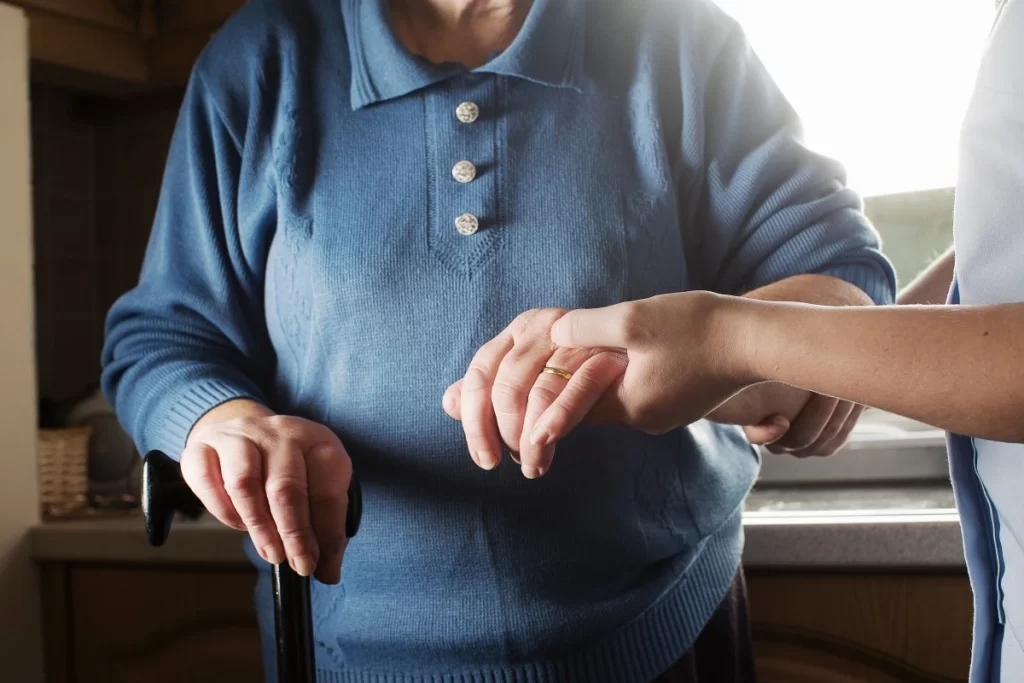What Is Positive Behaviour Support?
Positive Behaviour Support (PBS) is a person-centred approach designed to empower individuals, particularly people with learning disabilities, autism, and behaviour that challenges to thrive in their environment. At the core of PBS is a commitment to understanding the individual’s distress, the role of their environment, and implementing strategies to ensure their safety, happiness, and overall well-being. The essence of PBS lies in collaboration – working closely with the individual and their support network to foster inclusion, choice, participation, and equal opportunities.
Drawing from person-centred values and behavioural science, PBS employs evidence-based practices to address challenging behaviours while promoting the acquisition of vital life skills. The adaptable approach emphasises clear communication between various stakeholders involved in the care of individuals, including schools, families, and the community. It is also developed within a multidimensional framework, including environmental modifications, skill development, targeted behaviour changes, and consistent positive reinforcement.
The Positive Behaviour Support framework is structured into three essential stages: assess, manage, and prevent. This comprehensive model, developed in collaboration with the Care Quality Commission (CQC), facilitates the evaluation of service quality and effectiveness from the perspective of those utilising services.
The ABCs of Positive Behaviour Support
The ABCs of Positive Behaviour Support is a widely used behaviour model employed in educational and therapeutic settings for individuals of all ages. The acronym ABC stands for Antecedent-Behaviour-Consequence. It serves a primary objective of understanding and modifying specific behaviours. By closely observing what triggers a particular behaviour and noting the outcomes or consequences of that behaviour, this approach allows for effective intervention and behaviour management.
One example of the remarkable advantages of the ABC model is its simplicity and ease of recording. Data collection occurs in the individual’s natural environment, enabling parents, caregivers, and educators to implement the approach. Equipped with this data, they can create customised plans to support children and adjust to meet their individual needs, promoting a better learning and development environment.
However, the ABC model does have its challenges. It requires time and multiple sessions to accumulate enough data to identify clear patterns, and there may be instances where the model doesn’t confirm or suggest that the target behaviour directly responds to the antecedent. When faced with such complexities, involving a mental health professional for a comprehensive functional analysis may be necessary.
At Nurseline Community Services, we work alongside our in-house PBC specialists to create tailored PBS plans, prioritising the dignity and preferences of the people we serve.
Antecedents: Identifying Triggers and Precursors
In the ABC behaviour model, antecedents are essential elements, including many events or situations that may trigger a specific behaviour. These triggers can be quite diverse, varying from obvious external factors to more subtle internal states or challenges. Identifying antecedents becomes crucial when examining behavioural observations using the ABC model, as modifying these triggers can lead to different and more desirable behaviour outcomes.
Antecedents can have both positive and negative effects on behaviour. A negative antecedent triggers unwanted behaviour, while a positive antecedent can influence and encourage desired actions. These antecedents can be further categorised into two types: setting events and triggers.
Setting events encompass underlying factors, such as health difficulties, changes in emotional states, activities, sensory experiences, or disruptions to the daily routine. These setting events may occur hours or days before the actual behavioural situation.
Triggers, however, happen right before the behaviour occurs, such as encountering a specific person, hearing a particular noise, or experiencing sudden discomfort or pain.
Managing these antecedents proactively is a powerful way to prevent challenging behaviours. Strategies such as establishing trust, minimising known triggers, involving the individual in discussions about triggers, and encouraging these strategies can all contribute to developing a more positive and effective behavioural environment.
Behaviour: Understanding Challenging Behaviours
Understanding challenging behaviours is crucial to effective behaviour management, especially in care settings. Behaviour charts provide care teams and medical practitioners a structured way to objectively record challenging behaviours, including the antecedents, behaviour, and consequences. Thorough review and analysis of the recorded data are crucial steps in identifying effective strategies, which can then be incorporated into a comprehensive Positive Behaviour Support Plan (PBSP).
There is a range of behaviours that can be classified as either positive or negative. Positive behaviours benefit the individual or those around them, such as raising a hand in a classroom to speak, cleaning up after playing with toys, or wiping a table after lunch. Negative behaviours, however, such as throwing things, cause challenges for the individual and people around them.
Consequences: Responding Appropriately and Supportively
Consequences are the outcomes directly resulting from the behaviour being analysed. While consequences significantly impact the individual, they aren’t always immediately apparent. They range from additions or removals of items, activities, or interactions to how others react or respond. These consequences can occur immediately and later, leading to changes in feelings or sensations. Analysing behaviour consequences provides insight into the cause-and-effect relationship that influences the behaviour being studied. Recognising that consequences can be employed to encourage desired behaviours or reduce challenging behaviour is essential.
It’s crucial to note that consequences can sometimes be misinterpreted or misused, and observing their effects on the behaviour being tracked is essential in assessing their effectiveness, especially in reducing concerning or challenging behaviours. PBS practitioners and support teams can adapt, develop, and refine behaviour support plans by closely monitoring and analysing these consequences, leading to more positive outcomes.

Principles of PBS
Positive Behaviour Support follows several fundamental principles.
At the heart of PBS is “person-centred care“, which ensures that the individual is the focal point of care, considering their overall life circumstances, physical health, and emotional needs. Upholding the rights and choices of the individual, this principle encompasses informed consent, confidentiality, and non-discrimination, emphasising the incorporation of the individual’s preferences into the planning process.
“Partnership” is characterised by collaboration with the individual and their supporters, integrating various evidence-based approaches in a coordinated, person-centred manner. Also, a “planned approach” is essential, involving the creation of a clear and positive Behaviour Support Plan to establish shared understanding and accountability. The focus on being “positive” means emphasising proactive strategies to prevent challenging behaviours and teach new skills that improve an individual’s opportunities for a meaningful and independent life. These strategies can include environmental modifications, skill-building, and structured routines.
The principle of being “purposeful” emphasises the importance of assessing the reasons behind challenging behaviours, which informs the development and implementation of effective Positive Behaviour Support plans. Lastly, being “process driven” underlines a structured approach involving identifying, assessing, planning, implementing, monitoring, and evaluating data. This principle recognises the broader responsibilities, including ethical and legal considerations, while prioritising compassionate care.
The Goal of PBS
The overall goal of PBS is to improve the quality of life for individuals and those around them. PBS aims to provide proactive support to individuals and their families, facilitating a meaningful life without unnecessary restrictions.
By offering timely and tailored support, PBS reduces the likelihood of challenging behaviours occurring. This approach draws from various methodologies, each uniquely suited to the needs of the individuals receiving support. These methodologies include the Collaborative Problem-Solving Model, Trauma-Informed Care, and Positive Practice, among others. A well-crafted PBS plan features specific goals and objectives, integrating these methodologies to align with the individual’s life objectives.
Applying Positive Reinforcement
Applying positive reinforcement is a powerful tool in behaviour modification, rooted in the concept that individuals are more likely to repeat behaviours associated with positive outcomes and less likely to repeat those tied to adverse outcomes. Positive reinforcement is particularly effective for parents, as it encourages prosocial behaviours like sharing, following directions, and responsible behaviour while deterring misbehaviour. It can also motivate children to complete tasks like chores, get along with siblings, or complete homework without resistance.
Consistency, setting limits, offering encouragement, and practising kindness are fundamental to this method. Reinforcers can be internal or external, taking various forms like verbal praise, tangible rewards, social rewards, and activity-based reinforcers. Tracking and measuring behaviour change involves assessing frequency, duration, latency, and magnitude factors. It’s essential to recognise that behaviour change requires time and can vary depending on the individual and the behaviour targeted. Patience and consistency in applying positive reinforcement techniques and necessary adjustments to ensure effectiveness are essential.
The importance of positive reinforcement cannot be overstated, as it boosts children’s confidence, improves their engagement, fosters a sense of safety, and even contributes to the motivation and well-being of caregivers.
Positive Behaviour Support Plan
A Positive Behaviour Support Plan is a document created to understand and effectively manage behaviours that challenge while strengthening positive behaviours. It also uncovers the underlying causes of challenging behaviours and equips caregivers with appropriate strategies and the right support.
The foundation of a Behaviour Support Plan lies in a functional assessment, a process aimed at determining the function or purpose behind a person’s behaviour, often involving data collection to understand the contributing circumstances. This assessment informs the development of effective, individualised strategies and replacement behaviours that reduce the occurrence and impact of challenging behaviours while minimising restrictive practices. The plan should include a range of tailored PBS strategies, emphasising proactive rather than reactive strategies. Proactive strategies focus on meeting the person’s daily needs and preferences teaching appropriate communication and life skills.
Who Needs a Positive Behaviour Support Plan?
A Positive Behaviour Support Plan is tailored for individuals who consistently exhibit challenging behaviours that significantly impact their daily lives. These plans can be designed and applied to adults and young people, with early intervention being beneficial. Addressing challenging behaviours early on is vital for the individual’s well-being and the caregivers’ ability to provide proactive support.
Furthermore, students with learning disabilities, facing difficulties in academic tasks and social interactions, and individuals with mental health challenges requiring coping strategies and emotional regulation support can also benefit from PBS plans. These plans hold value for individuals who have experienced trauma, providing a safe environment for healing. Similarly, children with ADHD and Autism benefit from structured support to help them navigate challenges and express concerns.
Implementing the PBS plan is essential across all relevant settings where the individual spends time, including home, school, day services, and community activities. Consistency among caregivers and support providers is crucial for the successful execution of the plan. This consistency promotes the development of healthy ways of expressing needs and allows for adaptations or changes in strategies as needed.
Nurseline Community Services Applies PBS Within its Tailored Care
Nurseline Community Services is committed to improving the independence and quality of life for every individual we serve, prioritising safety and helping them reach their potential.
Positive Behaviour Support is an essential part of our approach. We collaborate with our in-house PBS specialists, the care recipient and their support networks, providing tailored care that prioritises the individual’s preferences and needs. Our teams recognise that people have diverse and evolving needs, and we continually evaluate our approach practices to ensure effectiveness.
We firmly believe in person-centred care and promote the dignity of individuals, enabling them to pursue their passions and live a fulfilling life.
Contact our offices in Bristol, Birmingham, or Gloucester to learn more about our commitment to person-centred care.
Contact us today to learn how we support individuals and their families through our compassionate PBS plans.
PBS Training
Nurseline Community Services offers comprehensive PBS training, which is mandatory for all clinicians. The training covers a range of critical topics, including an introduction to Positive Behaviour Support, the underlying theories supporting PBS, its benefits, and a deep dive into understanding and addressing behaviours that challenge.
Our clinicians learn about the significance of excellent communication skills, how behaviour serves as a form of communication, and the practical implementation of PBS strategies. The training also covers essential aspects such as developing positive behaviour support plans, primary and secondary prevention strategies, and the importance of post-incident reviews to continually refine and improve the support provided.





